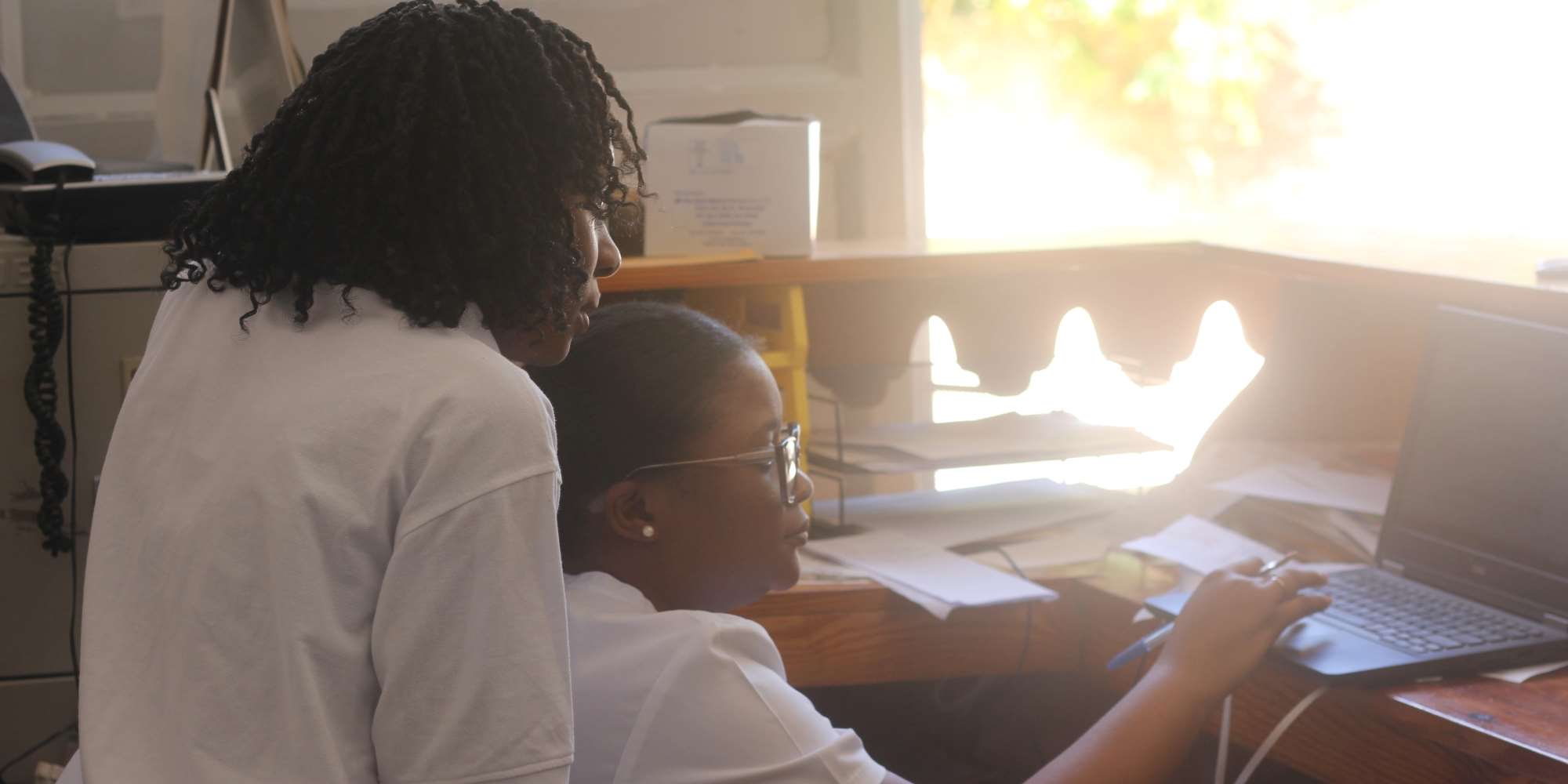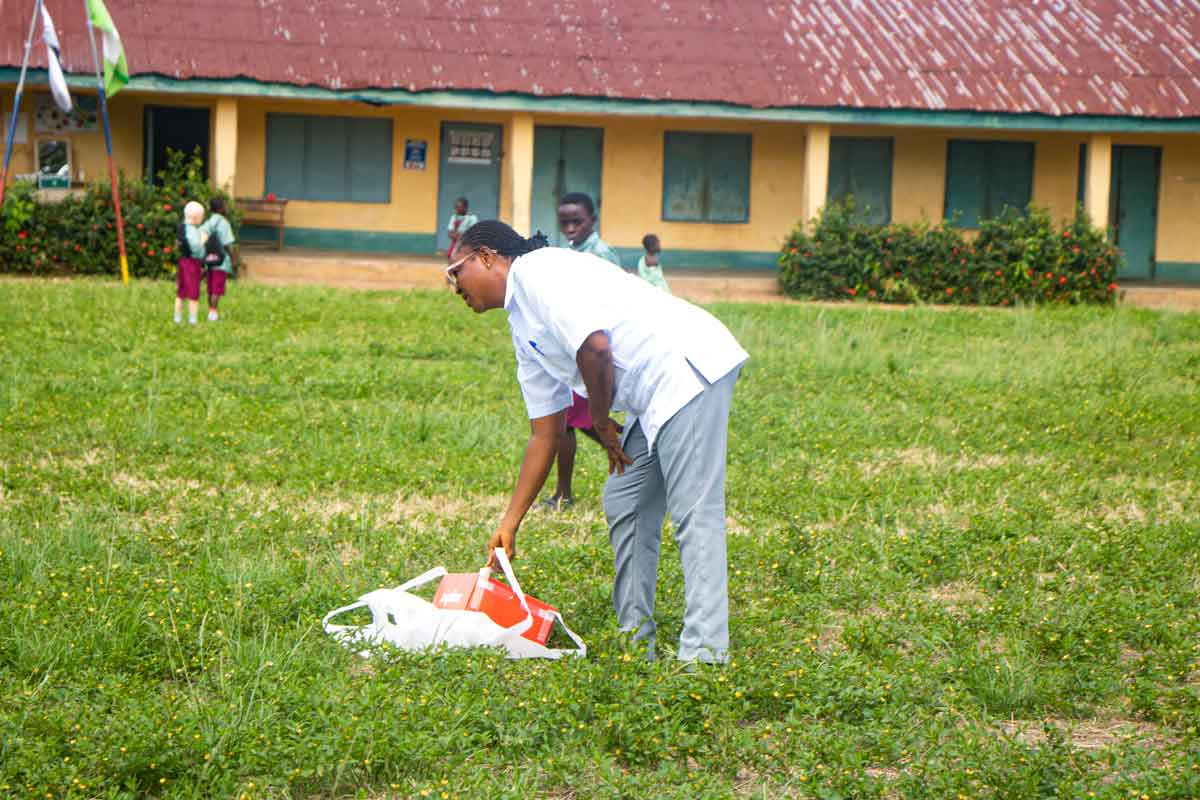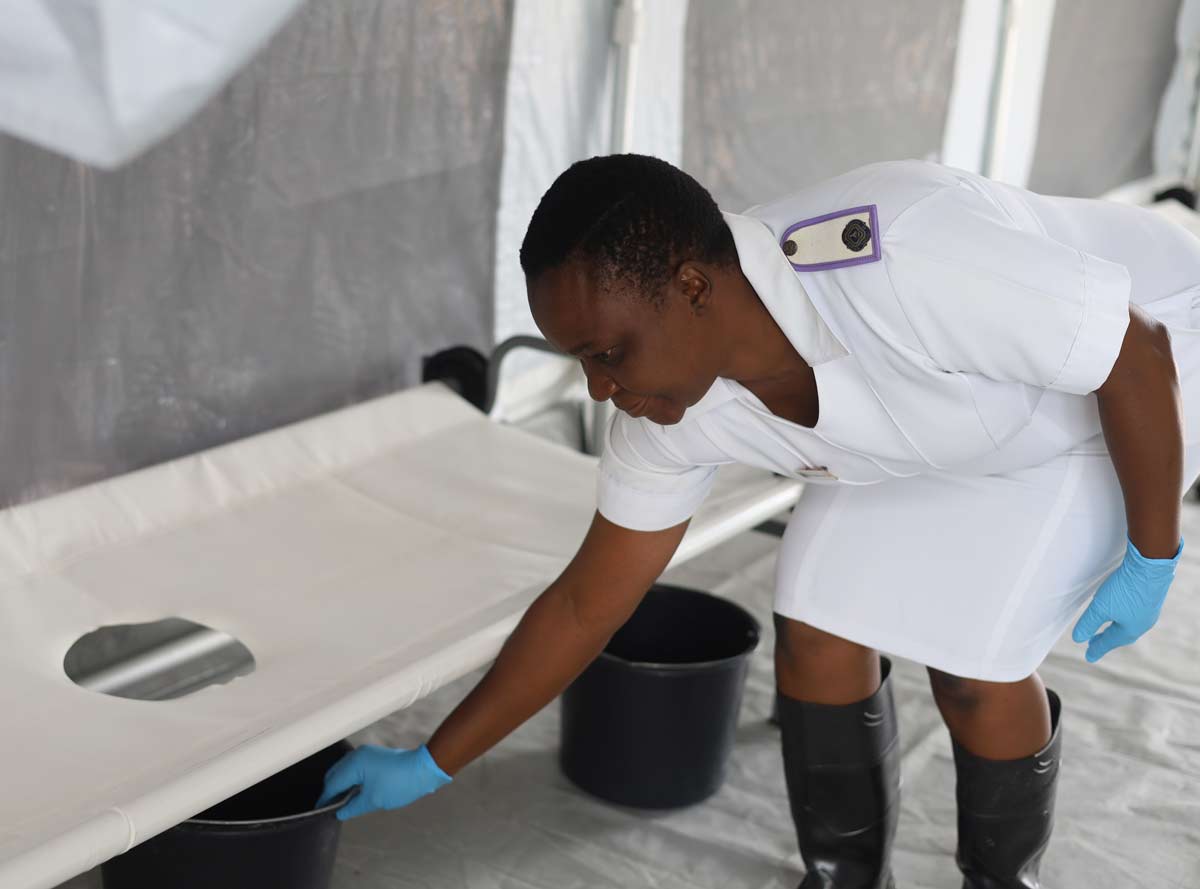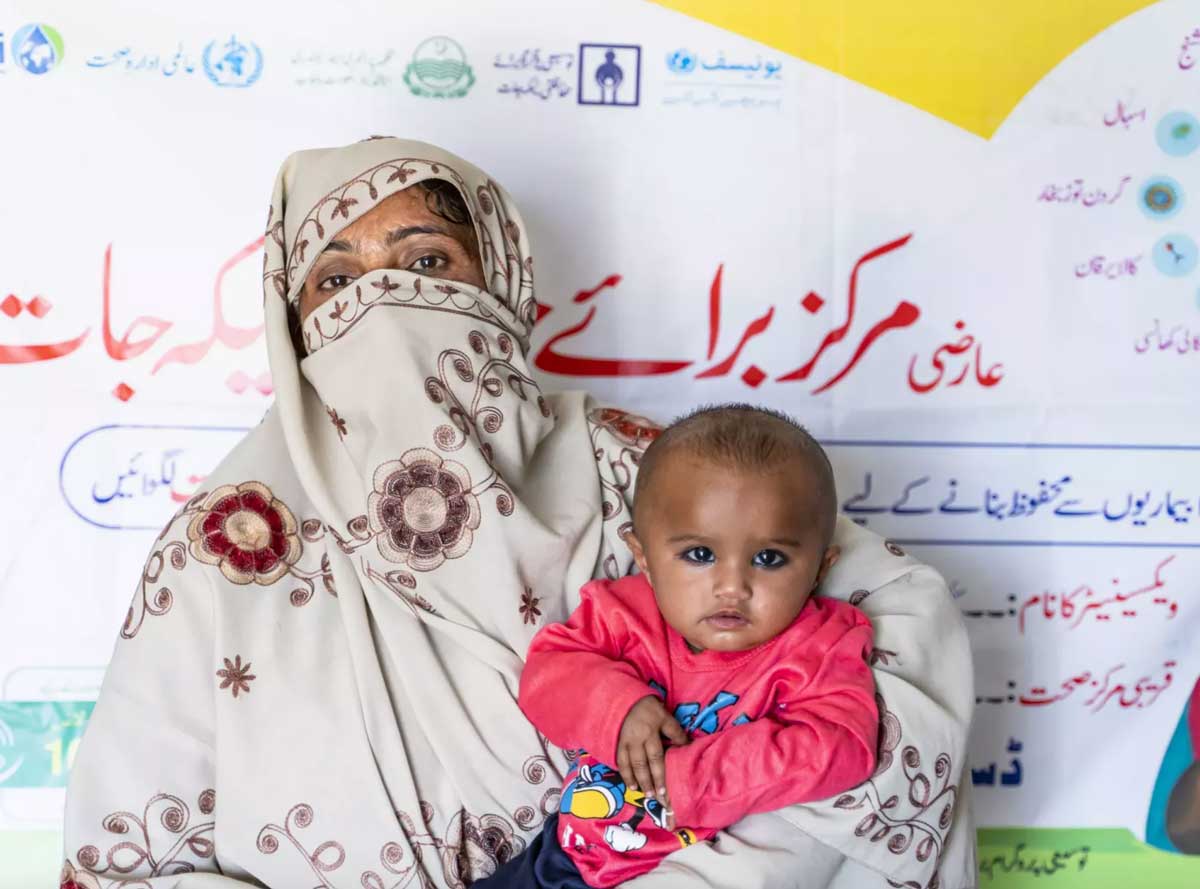Haiti: rising vaccination rates despite socio-political unrest
Despite extremely challenging conditions, Haiti has seen a 10% increase in vaccination coverage between 2022 and 2023, according to UNICEF.
- 11 June 2024
- 5 min read
- by Hadson Archange Albert

Hermeline Charles, who has served as the nursing director at Bellevue La Montagne Hospital (HBLM) for the past three years, has seen the challenges and successes encountered by vaccination efforts across Haiti play out at close range.
Located approximately thirty kilometres from downtown Pétion-Ville, Bellevue La Montagne Hospital caters to around ten localities in an area where essential services and infrastructure are scarce. Since its establishment in the Loiseau area in 2019, the hospital has initiated a vaccination campaign targeting children and pregnant women.
"In the past, there were no vaccination centres in the community. We enlisted health care workers to inform residents about the hospital's vaccination services. Additionally, we emphasised the importance of vaccination to parents and expectant mothers," Charles explains.
"In the past, there were no vaccination centres in the community. We enlisted health care workers to inform residents about the hospital’s vaccination services. Additionally, we emphasised the importance of vaccination to parents and expectant mothers."
– Hermeline Charles, director of nursing, Bellevue La Montagne Hospital
Every month, Bellevue La Montagne Hospital takes delivery of approximately 100 subsidised vaccines from the Ministry of Public Health through its communal office in Pétion-Ville. The community has responded positively to the hospital's campaign, although that can mean that demand often surpasses supply. Occasionally, some vaccines, like the rotavirus jab or the oral polio vaccine, run short, due to the socio-political crisis gripping the country.
Nevertheless, the hospital persists in its vaccination efforts, administering vaccines on the last Saturday of each month.
A shared commitment to vaccination
At Eliazar Germain Hospital in central Pétion-Ville, a similar scenario unfolds.
Sheilla Monfort Dessaint, the head of vaccination, acknowledges the ongoing stock shortages of specific vaccines caused by the crisis. "If a vaccine is unavailable here, it's unavailable anywhere in the commune," Dessaint says, underscoring her dedication to ensuring widespread vaccination.
The hospital administers vaccines to children and pregnant women five days a week, Monday through Friday. The vaccination team remains active even during periods of heightened violence. "We go out whenever possible," Dessaint explains.
The other side of the crisis
Between February and May, gang violence triggered a severe fuel crisis in Haiti. Armed rebels blocked access to the Port-au-Prince oil terminal, and according to the UN, gangs now control 80% of the metropolitan area of the capital.
Have you read?
Faced with these challenges, hospitals can no longer depend on the state electricity company, Électricité d'État d'Haïti (EDH), for their energy needs. To ensure the preservation of vaccines and maintain the cold chain, Bellevue La Montagne Hospital has implemented its own solar energy source. Similarly, Eliazar Germain Hospital uses solar refrigerators to store vaccines.
Despite their dedication and innovative solutions, leaders at both hospitals express concerns about the difficulty of reaching more people for vaccination. Their vaccination centres lack community health workers, who play a crucial role in raising awareness about vaccination's importance and encouraging participation in vaccination programmes.
An improvement...
Despite the challenges posed by the socio-political crisis, Haiti is seeing encouraging progress in vaccinating children and pregnant women. This improvement stems from active collaboration between hospitals, health centres, the government and international organisations.
In September 2023, a vaccination campaign led jointly by the Ministry of Public Health, PAHO/WHO, and other partners identified over 5,461 children aged 0 to 23 months and 1,280 pregnant women who were either unvaccinated or partially vaccinated in the communes of Carrefour, Cité-Soleil, Pétion-Ville, and Port-au-Prince. Thanks to this initiative, 839 children and 254 pregnant women received the necessary vaccines by December 2023. A total of 72 health mobilisers were deployed as part of the campaign.
UNICEF found a 10% increase in routine vaccination coverage between 2022 and 2023. This progress is attributed to a combination of strategies, including the RED approach (Reaching Every District), effective supply chain management, and increased awareness campaigns, according to UNICEF. The UN agency applauded Haiti's "remarkable resilience" in its commitment to protecting children's health.
In a report released in August 2023, the Ministry of Public Health stated that its goal is to achieve 95% vaccination coverage for all vaccines. To this end, a strategy to strengthen routine vaccination has been implemented for children under one year old, and pregnant women. Preliminary results are promising, with at least 75% of children under one year old receiving the BCG and measles/rubella vaccines in certain regions. In some departments, these rates even exceed 100%, according to the Ministry.
This article was translated from the original French. To view the original click here
More from Hadson Archange Albert
Recommended for you





